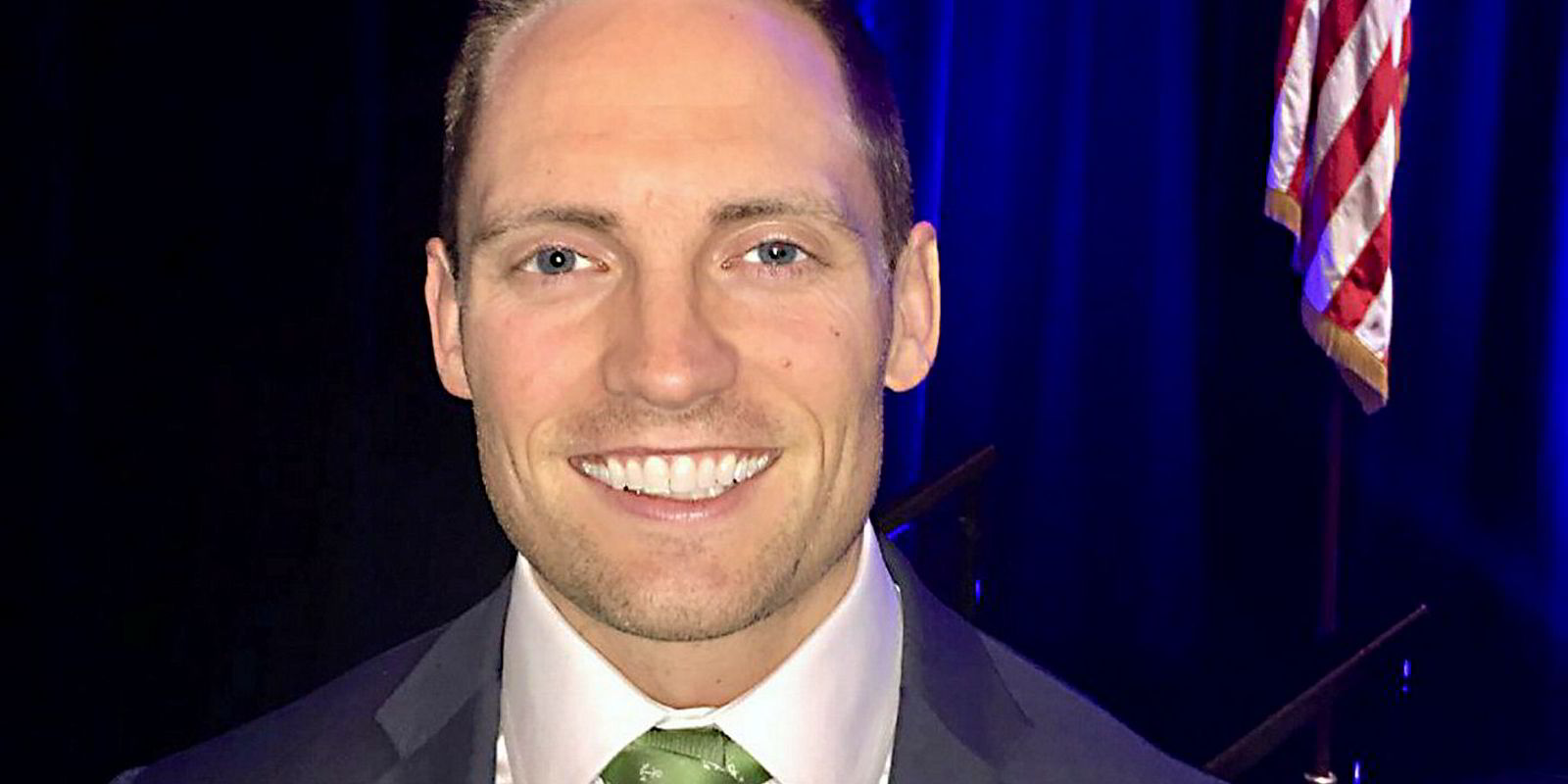When it comes to shipping equity research in Houston, Randy Giveans is like one of those gunslingers in a classic Western — the last man standing.
Until early April, Jefferies’ Giveans and Seaport Global Securities’ Magnus Fyhr published their coverage from Texas’ largest city, while virtually all of their analyst counterparts did the same from New York. Then Seaport pulled the plug on Fyhr and shipping.
When TradeWinds visits Jefferies’ office in downtown Houston, the newly lone ranger has a chance to assess the pros and cons of working in the Space City.
“Well, obviously in midtown Manhattan, the proximity to the investor base is much greater ... That said, a lot of hedge funds that are energy-related are based in Houston,” he says.
“So the cons are you don’t have the easy access to clients and management teams, but a lot of the commodities being shipped are coming from or to this region.”
Powerful neighbours
LNG powers such as Cheniere Energy and Tellurian are a few streets away from Jefferies’ office, and Golden Pass LNG is a floor below. Global traders Glencore, Trafigura and Vitol have offices nearby.
Chevron is across the street. Even the company with the largest market capitalisation among US shipping stocks, US-flag owner Kirby Corp, is a neighbour.
“There are a lot more boots on the ground here,” he says of the energy workforce. “I have many friends and peers who work in the oil and gas industry. It’s a diverse group of industry leaders who I know well.”

With two airports nearby, he can reach those outside of Houston without much trouble: “It’s easy to get around the country — it’s not like I’m across the world.”
If Giveans accentuates the positive, that is not an unknown position for Jefferies analysts. A bullish stance on shipping stocks goes back to Fyhr’s days at Jefferies, when he was considered one of the most influential pundits before the wave of New York initial public offerings from 2005 to 2007 changed the make-up of the industry.
Fyhr’s positive stance fitted with Jefferies’ aggressive investment banking charge during the era under John Sinders.
Fyhr was eventually replaced by his lieutenant, Douglas Mavrinac, who also adopted a largely bullish view on shipping stocks during his 14 years on the research side of Jefferies before becoming head of shipping investment banking in December 2017. Mavrinac’s move opened the door for Giveans, who had come to work for him at Jefferies six years earlier.
“I was an in-house banker at Continental Airlines from 2009 to 2011, so I knew a lot about financial markets, but I didn’t know the difference between a bulker and a suezmax tanker,” he recalls.
Yet Giveans knew Jefferies was looking for a research associate, had an interview with Mavrinac and was hired a week later.
“I figured I’ll learn a little about energy through shipping and then possibly move over to oil and gas analysis — but eight years later I’m still here and loving it,” he says.

Giveans may not be covering energy, but he exudes it. As reported in the current issue of TW+, he is a life-long athlete who next month will compete in the Wall Street D10 decathlon, a gruelling series of events that unofficially determines the fittest man and woman in the US financial community.
He will be seeking a fifth top-10 finish, but the real winner is charity. Giveans has raised $65,000 to fund paediatric cancer research and treatment in conjunction with the Memorial Sloan Kettering Cancer Center in New York City.
That same energy is evident in his overview of shipping. He sees positives in most sectors, although he has leavened his 19 “buy” ratings with nine “holds” as well. “My attitude is like my blood type — B-positive,” he quips.
In LNG and LPG shipping, he sees upsides around increasing US Gulf production and exports and improving supply-demand fundamentals. Tankers also have potential for a large boost related to the IMO 2020 sulphur regulations.
“We continue to believe a multi-year recovery is on the horizon, starting in the second half of this year, as record refinery throughput additions and increased tonne-mile demand should stimulate demand that easily outpaces new tanker deliveries,” he says.
While dry bulk remains challenged in the short term by concerns over Vale iron ore production, trade wars and sanctions, he adds: “Equities are overly depressed compared to current asset values and time charter rates — and most owners’ balance sheets are pretty solid.”
Whatever Giveans thinks about these issues, people are going to notice. And that is one of the chief adjustments he has had to make since his move from his in-house position at Continental Airlines.
“I’m really enjoying the new responsibilities — it’s a much deeper role as a senior analyst. Now I’m balancing relationships, modelling, writing and distributing content to a much larger audience.
"At Continental, I sent my work to about five people. Now, when I hit ‘publish’, my work goes to more than 2,000 — it’s a very public job.”





